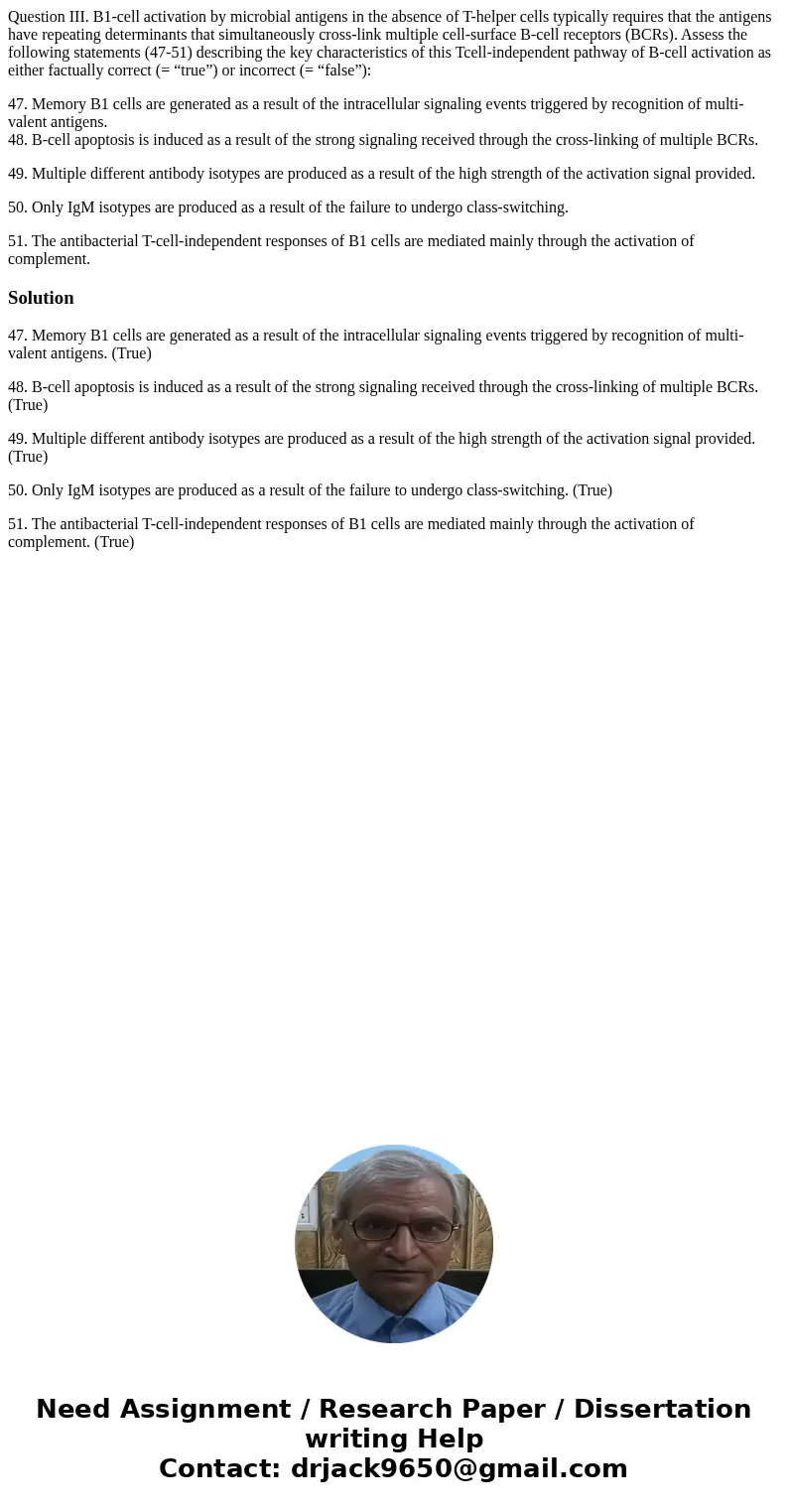Question III B1cell activation by microbial antigens in the
Question III. B1-cell activation by microbial antigens in the absence of T-helper cells typically requires that the antigens have repeating determinants that simultaneously cross-link multiple cell-surface B-cell receptors (BCRs). Assess the following statements (47-51) describing the key characteristics of this Tcell-independent pathway of B-cell activation as either factually correct (= “true”) or incorrect (= “false”):
47. Memory B1 cells are generated as a result of the intracellular signaling events triggered by recognition of multi-valent antigens.
48. B-cell apoptosis is induced as a result of the strong signaling received through the cross-linking of multiple BCRs.
49. Multiple different antibody isotypes are produced as a result of the high strength of the activation signal provided.
50. Only IgM isotypes are produced as a result of the failure to undergo class-switching.
51. The antibacterial T-cell-independent responses of B1 cells are mediated mainly through the activation of complement.
Solution
47. Memory B1 cells are generated as a result of the intracellular signaling events triggered by recognition of multi-valent antigens. (True)
48. B-cell apoptosis is induced as a result of the strong signaling received through the cross-linking of multiple BCRs. (True)
49. Multiple different antibody isotypes are produced as a result of the high strength of the activation signal provided. (True)
50. Only IgM isotypes are produced as a result of the failure to undergo class-switching. (True)
51. The antibacterial T-cell-independent responses of B1 cells are mediated mainly through the activation of complement. (True)

 Homework Sourse
Homework Sourse